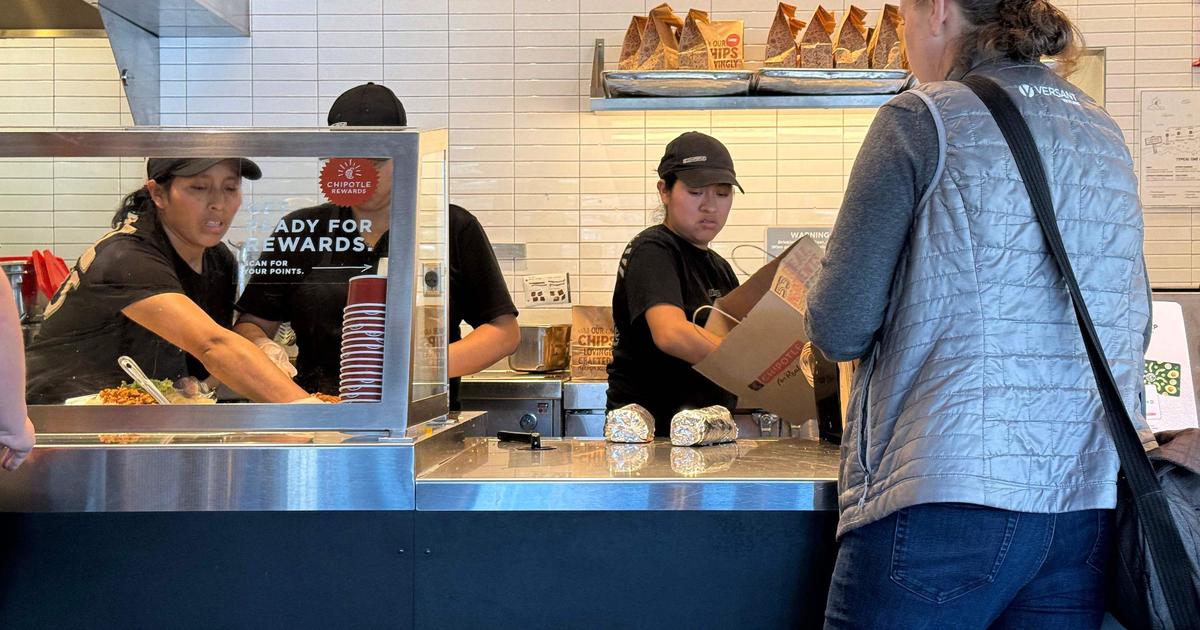By Nicole Acevedo - NBC News
The coronavirus is worsening the historic inequalities that made the wage gap for Latina women the highest in the United States, and according to a new report, that is particularly evident in California.
In that state,
almost 30% of Latinas lost their jobs during the first months of the pandemic
, compared to 9% of white women who experienced the same situation.
For Latinas who do not have legal status, the numbers are even higher (more than 36%), according to a new report published Thursday by Hispanas Organizadas por la Igualdad Politica (HOPE), a nonprofit, nonpartisan organization.
["What am I here for?" COVID-19 damages the economy of Latino families much worse than previously believed]
Even before the pandemic,
Latinas in California were paid an average of 42 cents for every dollar earned by a white man in 2019
, a wider wage gap than in 2011, when they earned 45 cents for every dollar earned by a white man. White man.
This is "the most significant wage gap in the nation," the research claims.
Consulting firm Elsa Macías, author of the report, found that this trend has persisted for more than a decade.
"Latinas have made absolutely no progress, 42 cents on the dollar in 2007 and 42 cents on the dollar in 2019,
" Macias said at a press conference on Wednesday.
"During the same period of time, white women have improved from 76 to 79 cents, not much but certainly better than what Latinas earn."
The research concludes that Latinas nationwide earned 51.4 cents for every dollar a white male earned in 2018.
'She can': the virtual community that seeks to empower Latina women
Sept.
6, 202001: 03
[What motivates young Latinos to vote? Racism, the coronavirus and the economy]
Nationally,
Hispanic women experienced a sharp increase in their unemployment rate due to the pandemic
- it jumped from 5.5% to 20.5% between February and April 2020, according to the Pew Research Center.
Among California Latinas, the wage gap worsens in the Los Angeles and Silicon Valley areas, where they earn 38 and 33.5 cents on the dollar respectively, Macias said.
The high cost of living in those areas, as well as the persistent exclusion of Latinas from the entertainment and technology industries that are the main industries in those regions, contribute to a wider wage gap among Latinas in those two sectors of California, said Helen Torres, HOPE's CEO.
[Joe Biden promises financial aid for Latinos affected by the coronavirus pandemic]
The report's authors say there is a need to address historic inequalities in the state such as under-resourced schools, less access to health care and limited financial options.
These problems have been exacerbated because the coronavirus pandemic disproportionately affected many Latinas who became unemployed, which shows their vulnerability to conditions similar to those of a recession.
The economic situation of Hispanics affects the overall economic health of the state
because one in five California residents is a Latina woman
, according to the report, and they make up a large proportion of the state's school-age student body and college population.
Although 86% of California Latinas graduated from high school during the 2018-19 academic year,
only 15% of Latinas in the state have a bachelor's degree, compared to 43% of white women
.
The coronavirus threatens to worsen access and educational rates at all levels, the report warns.
The Latino population has experienced advances in recent years.
Nationally, Hispanic household income was 76% of white household earned income in 2018, compared to 69% in 2010.
During the Great Recession, Latinas started their own micro-businesses when jobs were scarce.
Macías said that Latina-owned businesses grew 136% between 2007 and 2012, and "now there is preliminary evidence that the same will happen in this recession" caused by the coronavirus pandemic.
Four out of ten Hispanic families have trouble meeting their monthly expenses, according to a research center
July 8, 202000: 40
[Republicans rush to regain women's vote: they tried so at their convention]
Latinas have created 2.3 million new businesses nationwide, mostly micro businesses, representing 18% of all women-owned businesses
between 2014 and 2019.
But despite strong growth, Latina businesses earn less than all women-owned businesses overall ($ 50,900 versus $ 142,900 in 2019), are less likely to expand, and tend to operate on very narrow margins. , which makes them more vulnerable to the consequences of a generalized shutdown and prevents them from being more flexible and resilient to shocks.
Macías cautions that, compared to other groups, Latinas face a slower economic recovery in the face of the recession caused by the coronavirus, a pattern that also occurred during the Great Recession.
Hispanas Organizadas por la Igualdad Politica published a list of recommendations and political proposals.
This includes prioritizing Latinas in the grantmaking process as well as micro-business loans
, passing laws that help reduce the number of uninsured Latinas, expanding educational opportunities through standardized testing reform, increasing access to financial resources from students and investing state money to fund "a third-party public study of the Latina pay gap to present recommendations to the legislature and relevant stakeholders."
[The Latin neighborhoods of Madrid: among those most affected by COVID-19]
"There is definitely work to do because, as we have seen, there are still structural inequalities," Macias clarified.
Antonia Hernández, president and CEO of the California Community Foundation, a nonprofit organization, said in a statement that the report is a motivator for action.
“All government, corporate and philanthropic sectors need to make a huge investment in the future of Latinas
,” Hernández said.


/cloudfront-eu-central-1.images.arcpublishing.com/prisa/Z6YMDVPE2NHHTGDHDZ4XH5MOFM.jpg)









/cloudfront-eu-central-1.images.arcpublishing.com/prisa/KMEYMJKESBAZBE4MRBAM4TGHIQ.jpg)


